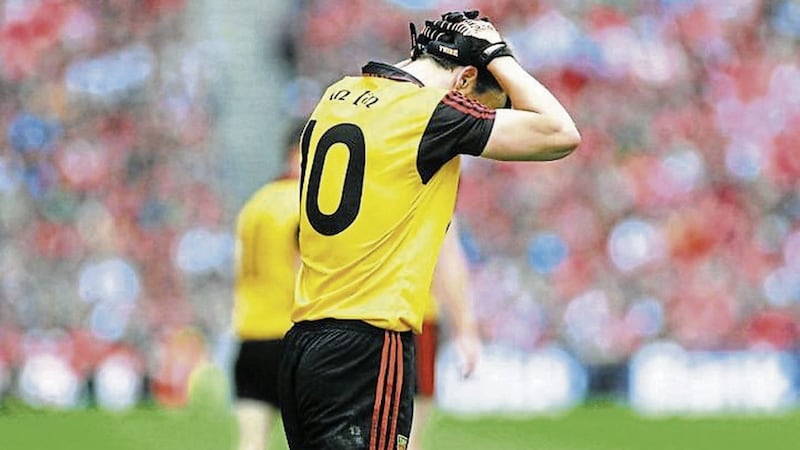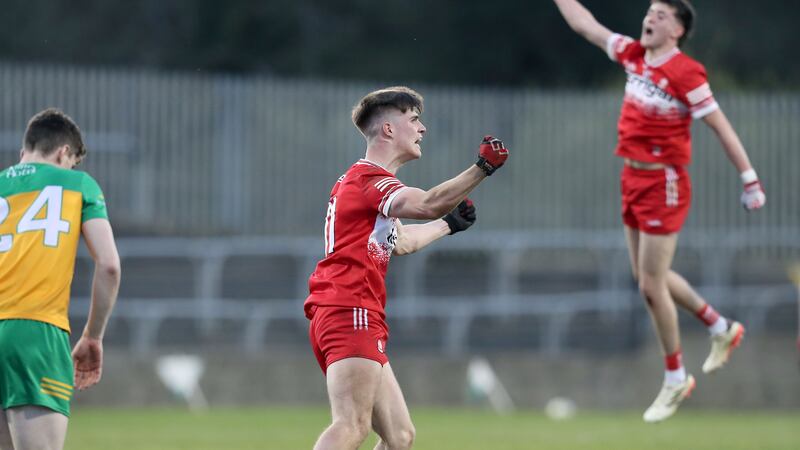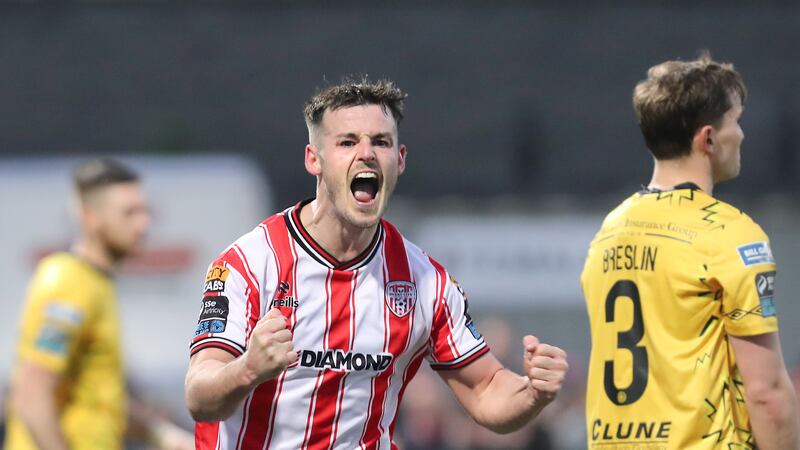IS it possible to have a healthy relationship with football? The reason I ask is that this particular question was recently put to me – well, more directed at me if I am being honest.
The consensus was that my relationship with football was an unhealthy one. I must admit I was never the easiest to be around when results were not going my way.
Whether the fault lay in my own contribution or of those around me, I would usually be very much on edge in the days and weeks after a poor performance or a defeat.
Towards the latter end of my career with Down, I was a complete nightmare.
The injuries were plaguing me and it was usually the medical team who bore the brunt of my frustration.
I remember at one point losing my temper in such frustration with the Down county doctor that I lost my breath immediately after the conversation and had to take 10 minutes to lie down on an outside bench to recover.
Our county doctor remains a great friend of mine and I still feel huge guilt over my approach towards him and injury at that time.
I would love to have been this relaxed, laid-back type, who could stroll in late, throw the boots on, play, come back in and leave without really causing me much emotional stress. However, I wasn’t. I was the opposite.
I came in anxious, bouncing, ready to take someone’s head off if need be and trying to ensure that those around me were similarly ready to go to war.
Emotionally, particularly in competitive games, playing was always a stressful event for me.
You may come across the word ‘stress’ quite a lot these days.
It has become much more prevalent in society and is one of the reasons psychological and physical ailments and absenteeism continue to rise among the population.
As a population, we have found it much more difficult to manage this stress and, combined with other factors such as the pressure of work, our studies or our family commitments, competitive sport has become something of a ‘grey’ area in contributing to stress.
The GAA, once a productive outlet for our stresses, has become the opposite for some.
Gaelic football can be an additional ‘stressor’ to a younger generation and indeed to a greater deal of many other participants.
I would admit that, at times, I hated football. In the last few years of my career, I couldn’t wait to retire.
The pressure I was putting myself under to play to a certain standard and at a certain level was overwhelming.
For some county and club players, the stress has become too much. They are quitting in their mid and late 20s.
When we talk about drop-out rates, especially from the 18 to 21-year-old bracket, you could gather up a small army of talent who I have seen fall ‘out of love’ with the game.
Part-time jobs have increasingly become the priority. They provide the means to make money and, as a result, the ability to wine and dine a loved one, take a holiday over the summer or buy a new car. It is a vicious circle as, without the money, none of these lifestyle luxuries are possible.
Something has got to give and, in some cases, it is inevitably Gaelic games.
With the pressure of having to be at training at 7pm three or four times a week (for the average club player) and guys like me sending them into a ‘war’ scenario on match day, a fair amount of players are deciding to avoid the stress of it all.
Increasingly, their priority is being directed towards club football.
Players are deciding that, given the gulf in class within the inter-county scene, county success is highly unlikely outside of Mayo, Dublin, Kerry and Tyrone, so a club championship or crack at an Ulster Club title is worth more to them in terms of their commitment to training four to five nights per week.
However, it wasn’t always like this. Whether it is my advancing years or just plain bad memory, I cannot remember feeling under the same pressure as a 21- or 22-year-old as when I reached 31.
You would naturally assume you would have less pressure with more experience, but in my case it was the opposite.
I was never happy with my last training session or last match. Perhaps it was desperation to win something tangible, something that justified the years of commitment and slog with club and county. Perhaps it was recognition from peers or supporters in my own mind. Whatever it was, I certainly never attained it.
I can understand how and why powerful people in sport have a fall from grace at some points in their lives.
Whether this comes because of addictions or indiscretions, the fact is that you cannot recreate that powerful adrenaline buzz you get through winning and competing in sport.
No tablet or pill can give you this same satisfaction. It’s the preparation, the dedication and the emotion.
I have heard coaches preach about ‘taking the emotion’ out of certain game-day scenarios. Perhaps it works for some. However, I have always found it the most difficult element of sport to eradicate. For me, football is and has been the MOST personal thing you can do at times.
In the GAA, it is particularly personal as so much of it is still and will always remain predominantly voluntary.
The U2 song ‘With Or Without You’ could be the best description of my relationship to football When I was playing, I couldn’t live with it at times. And when I wasn’t playing, I couldn’t live without it.
I have a relationship with football that lacks balance and perspective.
One that lacks acceptance that you will lose more than you win. One that thinks of football as one of the most personal things in the world. One that brings out the best and worst in me.
One that I love and hate in equal measure.
One that defines me at times and consumes me.
I have come to discover that it is an unhealthy relationship, but one I can never quit on.








